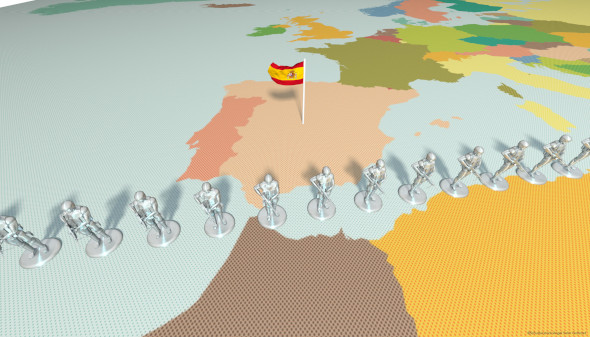While there are clear power asymmetries in African-European migration relations, Africa countries sometimes use migration and migrants as a counterbalance to European strength. This counter-balancing was evident on May 18 2021 when Morocco recalled its ambassador to Spain in the midst of a dispute caused by 8000 migrants leaving Morocco to enter the Spanish enclave of Ceuta. The crossing was reportedly Morocco’s response to Spain’s decision to admit for medical treatment Brahim Ghali, the leader of the Western Sahrawi Arab Republic and its independence movement.
The Morocco-Spain dispute exposed wider financial and diplomatic power asymmetries between Europe and Africa that have distorted African priorities. The asymmetries further created pressure to implement policies that privilege European interests over those of African countries and migrants. The result is that migration and migrants can be weaponized as a diplomatic tool.
Morocco’s prominence in migration diplomacy is not only about the numbers of migrants originating from and transiting through it, but also about its geographic proximity and foreign policy that promotes active engagement on migration issues. The diplomatic row between Morocco and Spain occurred in the context of other ongoing bilateral negotiations between the EU, Tunisia and Libya.
All provide good examples of how geographic factors inform, influence, and shape African policy-making, where migration is used as a diplomatic and foreign policy tool to promote a country’s global standing and pursue national interests in regional and international relations.
This is a part of a blog post by Mehari Taddele Maru, run by Migration Policy Centre.
